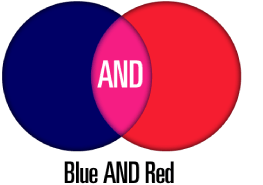Assalamualaikum. Now already in week 3. Topic for this week
is about library catalogue. From
this lesson I got to know how to use online library catalogue. I never use that
kind of way to find information of book, but this lesson made me more
interested to use OPAC. From my understanding about library catalogue, that is
the system that allow user to find out information about book. From that, we
get to know the characteristic a book. OPAC is contain a record of each book,
audiovisual and so on. From that, we could know where is the place of that book
and their format also. Through OPAC also we can renew our book in express way.
Library card catalogue is
a file cabinet containing individual cards with bibliography
information about specific item in library. Computerized online
catalogue(OPAC) have all materials in library that we can find information more
quickly and efficiently from internet. This is the example of OPAC that AIU use
for their library:
We have to know about OPAC because :
> Allow us to do a better job of
locating books and other
materials available through our libraries as well as other libraries.
>This can be a big help and time-saver in your search for information
that is needed for papers or projects.
There are 4 types of searching such as Browse, Keyword, Reserve and
Expert.
Actually still have many type of searching in each online library. Through
KEYWORD search, we just enter maybe their first capital, and the system will
give us suggestion.
SEARCH TOOL: INTERNET
From this
lesson, I know about internet search tool that actually we are using that
almost everyday. I get to know the strength or weaknesses of each search tool.
From here, I wanted to change my own search tool at my laptop. A
web
search engine is designed to search for information on the World Wide Web. Internet
is the electronic network that connect our personal computer around the world.
Many kind of things that we can find from internet.
There are 5 types of search tool of internet. One
of them is a SEARCH ENGINES. It is designed to search for information in World
Wide Web. For example that we often use is www.google.com.
Beside search engines, there is a META-SEARCH
ENGINES. It is a multiple data sources. It is also search tool that sends user
requests to several other search engines or databases and aggregates the
results into a single list. Example of Meta-Search engines is MetaCrawler(http://www.metacrawler.com)
Dogpile (http://www.dogpile.com)
Have
another types of seacrh tool of internet
that I have learnt such as INFORMATION GATEWAY, SUBJECT DIRECTORIES, and
at last is SPECIALIZED DATA. Thats all for this week :) thankss for reading ..

 TRUNCATION AND WILDCARD - WEEK 6
TRUNCATION AND WILDCARD - WEEK 6





